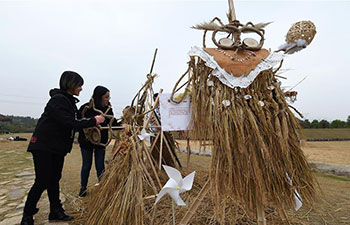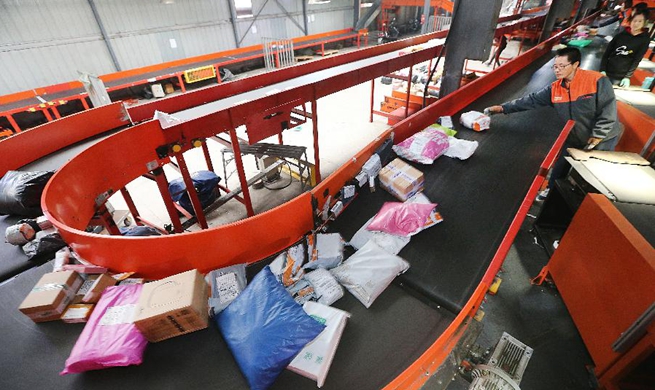ABUJA, Nov. 12 (Xinhua) -- The death toll in a cholera outbreak hitting at least three out of six of Nigeria northeastern states has risen to 175 as of early November, according to the Norwegian Refugee Council (NRC), an international humanitarian group on Monday.
Late September, the United Nations Office for the Coordination of Humanitarian Affairs and local officials in Nigeria confirmed only 97 killed by the water-borne disease.
Following its recent findings, the NRC, while confirming the latest death toll in the northern city of Maiduguri, capital of Borno State, said 10,000 people were affected by the outbreak in Adamawa, Borno, and Yobe -- all in the northeast region.
Maiduguri, also known as the origin of terror group Boko Haram, is home to over 243,000 displaced people in congested camps with poor hygiene facilities, creating an enabling environment for cholera to spread.
Janet Cherono, program manager of the NRC in Maiduguri, said the cholera situation was worsened by the rainy season.
Cholera is a highly virulent disease characterized in its most severe form by a sudden onset of acute watery diarrhea that can lead to death.
Cherono said one of the major causes of the latest outbreak is the congestion in the internally displaced persons' camps spread across the northeast region, which makes it difficult to provide adequate water, sanitation, and hygiene services.
According to her, Nigeria might be heading toward a worse outbreak of the water-borne disease next year "if more land is not urgently provided for camp decongestion and construction of health and sanitation facilities."
The Nigerian Center for Disease Control has declined to comment on the latest death toll but confirmed more than 16,353 cholera-related cases have been recorded so far in Nigeria since the beginning of the year.
On Nov. 8, Nigerian President Muhammadu Buhari launched a national action plan for the revitalization of water supply, sanitation, and the hygiene sector, calling on governments at all levels to give water supply and sanitation the required attention, saying the high prevalence of water-borne diseases that are being reported in different parts of the country was no longer bearable.
According to data by the Nigerian government, access to piped water services, which was 32 percent in 1990, had declined to 7 percent as of 2015, while access to improved sanitation had decreased from 38 percent in 1990 to 29 percent in 2015.













